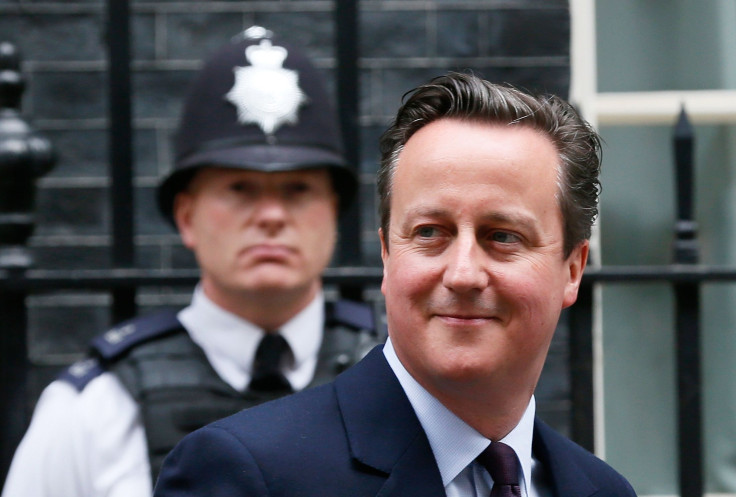European Union UK Membership: European Commission Expects David Cameron To 'Make The Case' For Britain's Continued Association

British Prime Minister David Cameron won't have much time to celebrate his Conservative Party's resounding win in parliamentary elections Thursday, as he's expected to immediately begin working on campaign promises to renegotiate the U.K.'s status in the European Union. European Council President Donald Tusk is waiting for Cameron’s government to “make the case” for the United Kingdom’s continued membership in the EU, but Cameron promised British Euroskeptics that a Conservative-led government would hold an in-or-out referendum by 2017.
“[I am] deeply convinced that there is no better life outside the European Union, for any country, … A better EU is in the interest not only of Britain but every state,” Tusk, a former prime minister of Poland, said in a statement, adding that he was “ready to help” the British government make a strong case for continued EU membership.
Cameron himself wants to renegotiate Britain’s status within the EU to regain some of its economic, political and policy autonomy, but with just a 12-seat majority in Parliament, Cameron is vulnerable to calls from Euroskeptics in his own party who want a total exit from the EU. If he is to win support for his “proper, full-on treaty change,” he’ll have to speak to the concerns of those skeptics.
A British exit would be a tough pill to swallow for the EU, which has struggled in recent years to make a case for tightening integration. A seven-year-long economic crisis, the threats of a Greek exit from the eurozone and member states’ concerns over mass migration have strengthened calls amongst Europe’s right for a looser union, or no union at all. The National Institute of Economic and Social Research, a London think-tank, earlier this week projected the U.K. to far outgrow France to become Europe’s second-largest economy within the next year (if it already hasn’t), which could further strengthen calls for a more economically autonomous Britain. However, according to Moody’s, one question remains: Can the U.K. “replicate at least part of current EU trade freedoms”?
More @MoodysRatings: @Conservatives majority may cause speeding up of #EU referendum because of lack of @LibDem brake pic.twitter.com/wWb1TJUuZ3
- Peter Spiegel (@SpiegelPeter) May 8, 2015European Commission President Jean-Claude Juncker echoed Tusk’s statement, saying he was ready to work with Cameron to “strike a fair deal for the United Kingdom in the EU,” but separately said the principle of free movement is “non-negotiable.” That won't go over well with Britain’s Euroskeptics, whose main gripe with the EU is the influx of migrants from less prosperous eastern and southern European states into the U.K.
© Copyright IBTimes 2025. All rights reserved.






















